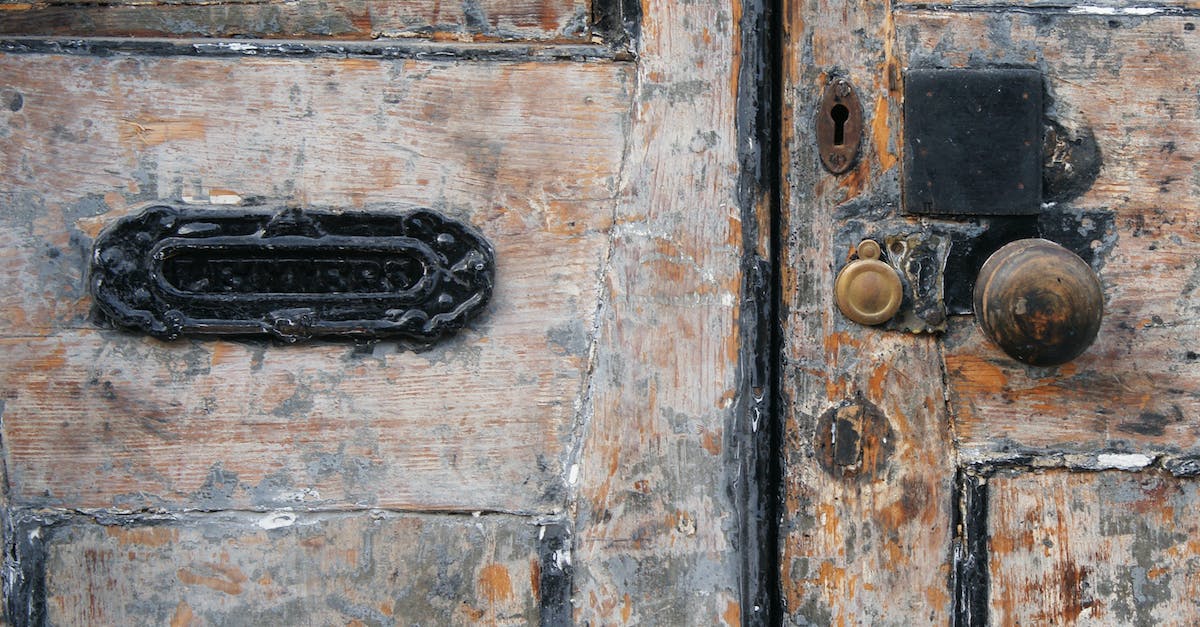When it comes to planning a vacation or a business trip, finding the perfect hotel is crucial. After all, a comfortable and aesthetically pleasing accommodation can greatly enhance the overall experience. However, not all hotels are created equal, and some establishments have gained a reputation for being less than visually appealing. Enter the concept of “hotel ugly.” In this article, we will explore what exactly constitutes a “hotel ugly,” why it matters, and how to avoid booking a less-than-ideal stay. So, if you’re ready to dive into the world of hotel aesthetics, read on to discover how to ensure a visually pleasing and enjoyable hotel experience.
KEYWORD: What is a “hotel ugly”?
What is a “Hotel Ugly”?
Hotel ugly refers to the concept of a visually unappealing or aesthetically unpleasant hotel. While many individuals prioritize factors such as location and price when booking accommodation, the importance of hotel aesthetics should not be underestimated. A visually pleasing hotel can greatly enhance the overall experience of a vacation or business trip.
So, what exactly makes a hotel ugly? It can encompass various aspects, including outdated or mismatched decor, poor maintenance, lack of cleanliness, and uninspiring design. Every individual has their own preferences, but certain common factors contribute to a hotel’s visual appeal. These may include stylish and modern furnishings, well-maintained facilities, and thoughtful attention to detail in interior design.
The impact of hotel aesthetics goes beyond mere appearances. Studies have shown that the environment we inhabit can greatly affect our mood, mental well-being, and overall satisfaction with our surroundings. A visually appealing hotel can create a positive atmosphere, promote relaxation, and contribute to a memorable and enjoyable stay.
When considering hotel aesthetics, it is important to note that different travelers have different preferences. Some may prefer minimalist and contemporary designs, while others may find charm in vintage or eclectic styles. However, regardless of personal taste, a well-designed and visually pleasing hotel should aim to create a cohesive and harmonious environment that is inviting, comfortable, and reflects the overall brand or theme of the establishment.
By understanding the concept of hotel ugly, travelers can make more informed decisions when booking accommodation. Paying attention to online reviews, looking at photos of the hotel, and considering factors such as cleanliness, decor, and overall atmosphere can help avoid the disappointment of a visually unappealing stay. Choosing a visually pleasing hotel can greatly contribute to a positive travel experience, creating lasting memories and a sense of relaxation and rejuvenation.
In the next section, we will explore why hotel aesthetics matter and the impact it can have on the overall hotel experience.
Why does Hotel Aesthetics Matter?
When it comes to planning a trip, most people focus on the destination, activities, and even the price of accommodation. However, one aspect that is often overlooked but shouldn’t be is the aesthetics of the hotel.
Hotel aesthetics matter because they can have a significant impact on a traveler’s overall experience and satisfaction. Here’s why:
1. Mood and Mental Well-being
The visual appeal of a hotel can directly affect a guest’s mood and mental well-being. Imagine checking into a hotel room that is outdated, poorly decorated, and lacks any sense of style. It’s not a welcoming sight, is it? On the other hand, walking into a hotel with modern design, vibrant colors, and thoughtfully curated decor can instantly uplift one’s spirits and create a positive environment.
2. Comfort and Relaxation
Aesthetically pleasing hotels often take more care in creating an atmosphere of comfort and relaxation. From cozy furniture and soothing color schemes to soft lighting and visually appealing artwork, every element is carefully selected to enhance the guest’s comfort and provide a tranquil space to unwind after a long day of traveling or work.
3. Brand Experience
The aesthetics of a hotel also play a crucial role in creating a cohesive brand experience for guests. Hotels with a specific theme or concept rely heavily on visual elements to convey their story and create a unique experience. Whether it’s a boutique hotel with a trendy design or a historic hotel with vintage charm, the aesthetics contribute to the overall brand identity and help set the hotel apart from its competitors.
4. First Impressions
The visual appeal of a hotel is often the first thing guests notice when they arrive. This first impression can significantly influence their overall perception of the property. If a hotel looks outdated, unkempt, or lacks attention to detail, it may create a negative impression and lower the guest’s expectations. Conversely, a well-designed and visually appealing hotel can create a positive initial impression and set the stage for a memorable stay.
In order to avoid booking a less-than-pleasing stay, it’s essential for travelers to consider the aesthetics of a hotel when making their selection. By paying attention to online reviews, photos, cleanliness, decor, and the overall atmosphere, they can make more informed decisions and ensure a visually pleasing and enjoyable hotel experience.
Factors that Contribute to “Hotel Ugly”
When it comes to hotels, “hotel ugly” is a term used to describe properties that lack aesthetic appeal and fail to create a positive experience for guests. There are several factors that contribute to this phenomenon, making it imperative for travelers to be aware of these aspects before booking their stay. By understanding the factors that can make a hotel “ugly,” guests can make informed decisions and avoid potential disappointments.
Lack of Maintenance and Cleanliness
One of the fundamental factors that contribute to “hotel ugly” is a lack of maintenance and cleanliness. When hotels fail to maintain their properties properly, it can negatively impact the overall aesthetic appeal. Examples of this include worn-out furniture, peeling wallpaper, dirty carpets, and outdated fixtures. A lack of cleanliness can also be a significant turn-off for guests, creating a sense of discomfort and making their stay less enjoyable.
Outdated Decor and Design
Another factor that can contribute to the “hotel ugly” experience is outdated decor and design. When a hotel’s interior design and decor are not up to par with modern standards, it can make the property feel tired and uninviting. This includes old-fashioned furniture, outdated color schemes, and stale artwork. Modern travelers often look for contemporary and stylish accommodations, and a lack of aesthetic appeal in this regard can lead to a negative perception of the hotel.
Poor Lighting and Dim Atmosphere
A hotel’s lighting plays a significant role in creating its ambiance and overall aesthetic appeal. Insufficient lighting or poorly designed lighting fixtures can result in a dull and uninviting atmosphere. Dimly lit corridors, rooms, and public spaces can make guests feel uncomfortable and give an overall gloomy impression of the hotel. Lighting should be carefully considered to create a warm and welcoming environment, enhancing guests’ experience throughout their stay.
Unattractive Surroundings
The aesthetics of a hotel are not limited to its interior, but also encompass its surroundings. If a hotel is situated in an area with unattractive views or lacks well-maintained outdoor spaces, it can contribute to the “hotel ugly” perception. The beauty of a hotel can be diminished if it is surrounded by noise, construction sites, or other undesirable factors. Hotels that prioritize landscaping, beautiful views, and serene surroundings offer guests a more visually pleasing and enjoyable experience.
The Impact of “Hotel Ugly” on the Guest Experience
When staying at a hotel, the overall guest experience is influenced by many factors – from the level of service provided to the quality of amenities. However, one often overlooked aspect that can significantly impact the guest experience is the visual appeal of the hotel.
“Hotel ugly,” a term used to describe a hotel that lacks aesthetic appeal, can have a profound effect on how guests perceive their stay. A visually unappealing hotel can leave guests feeling disappointed, dissatisfied, or even regretful of their choice.
One of the main ways in which “hotel ugly” affects the guest experience is through the impression it creates upon arrival. The exterior of a hotel, including the entrance, parking area, and landscaping, sets the tone for the stay. If these areas are poorly maintained, outdated, or unkempt, it can instantly give the impression of neglect and lack of attention to detail. This initial impression can color the entire guest experience.
Moreover, the interior design and decor of a hotel play a crucial role in shaping the guest’s perception of the establishment. Outdated furnishings, worn-out carpets, faded paint, or mismatched decor can make a hotel appear tired, neglected, and in need of an upgrade. On the other hand, a well-designed hotel with cohesive aesthetics and stylish furnishings can create a sense of comfort, luxury, and attention to detail, enhancing the overall guest experience.
Another factor contributing to “hotel ugly” is poor lighting. Insufficient or harsh lighting can make a space feel unwelcoming and uninviting. On the contrary, soft and warm lighting can create a cozy and inviting ambiance that makes guests feel at ease and relaxed.
The surroundings of a hotel also play a significant role in its visual appeal. A hotel located in an unattractive or noisy area may detract from the overall guest experience. On the other hand, a hotel with beautiful surroundings, such as scenic views or well-maintained gardens, can enhance the guest’s enjoyment and provide a sense of tranquility.
The concept of “hotel ugly” goes beyond just the aesthetics. It has a direct impact on the guest experience and satisfaction. From the initial impression upon arrival to the interior design, lighting, and surroundings, all these factors influence how guests perceive their stay. Therefore, when booking a hotel, it’s essential to consider these aspects to ensure a visually pleasing and enjoyable experience.
How to Avoid Booking a “Hotel Ugly”
When it comes to booking a hotel, nobody wants to end up in a place that falls under the category of “hotel ugly”. After all, our surroundings can greatly influence our overall experience during a stay. To ensure a visually pleasing and enjoyable experience, keep the following tips in mind when booking accommodations:
- Research the Hotel’s Exterior and Surroundings: Take a few moments to browse through photos of the hotel’s exterior and surroundings. Look for any signs of neglect or poor maintenance. If the hotel is located in a scenic area, make sure the surroundings are as appealing as the hotel itself.
- Check Out the Interior Design: Look for pictures of the hotel’s interior spaces, such as the lobby, rooms, and common areas. Pay attention to the color scheme, furniture, and general style. Choose a hotel that matches your personal taste and preferences.
- Consider the Lighting: Lighting is a crucial aspect of any hotel’s aesthetic appeal. Look for well-lit spaces with a good balance of natural and artificial light. This can create a welcoming and inviting atmosphere.
- Read Reviews and Ratings: One of the best ways to gauge the visual appeal of a hotel is by reading reviews and ratings from previous guests. They often mention the overall appearance and atmosphere of the property. Look for feedback about cleanliness, design, and overall aesthetics.
- Consider the Hotel’s Brand and Reputation: Some hotel brands have a reputation for their attention to design and aesthetics. Research brands that are known for their visually appealing properties. Opting for a reputable hotel brand can increase the likelihood of a positive visual experience.
Remember, when booking a hotel, it’s essential to consider the visual appeal in addition to other factors such as location, amenities, and price. By following these tips, you can avoid booking a “hotel ugly” and ensure a visually pleasing stay.
Conclusion
By following the tips provided in this article, travelers can ensure a visually pleasing and enjoyable hotel experience. Researching the hotel’s exterior and surroundings allows them to avoid booking a visually unappealing hotel. Checking out the interior design helps them gauge the overall aesthetic of the hotel. Considering the lighting ensures that the hotel provides a well-lit and inviting atmosphere. Reading reviews and ratings gives them insights into the experiences of previous guests. Lastly, considering the hotel’s brand and reputation helps them choose a hotel known for its visual appeal.
Booking a visually pleasing hotel can greatly enhance the overall travel experience. It sets the tone for a comfortable and enjoyable stay. By being mindful of these factors, travelers can avoid the disappointment of staying at a “hotel ugly” and instead enjoy a visually pleasing and memorable trip. So, the next time you’re planning a trip, remember to do your research and choose a hotel that will provide a visually appealing and enjoyable stay.
Frequently Asked Questions
Q: How can I avoid booking a visually unappealing hotel?
A: Research the hotel’s exterior and surroundings, check out the interior design, consider the lighting, read reviews and ratings, and consider the hotel’s brand and reputation.
Q: Why should I research the hotel’s exterior and surroundings?
A: Researching the hotel’s exterior and surroundings helps you evaluate if the location is visually appealing or if there are any eyesores nearby that may affect your stay.
Q: What should I look for in the interior design of a hotel?
A: Look for a visually pleasing interior design that matches your preferences and creates a comfortable and inviting atmosphere.
Q: Why is lighting important in a hotel?
A: Proper lighting can greatly enhance the visual appeal of a hotel room. Look for well-lit spaces that create a positive ambiance.
Q: How can reading reviews and ratings help avoid visually unappealing hotels?
A: Reviews and ratings provide insights from previous guests about their experiences. Look for positive comments about the hotel’s visual appeal and avoid booking if there are consistent negative reviews on this aspect.
Q: Why should I consider the hotel’s brand and reputation?
A: Well-established hotel brands have a reputation for maintaining high visual standards. It’s safer to choose a hotel with a reputable brand to ensure a visually pleasant stay.




